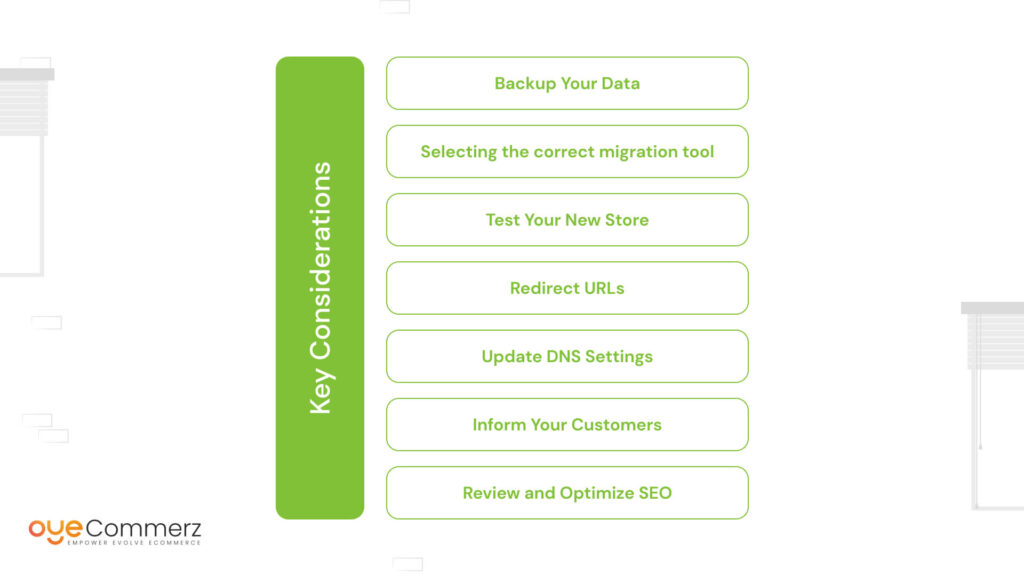In the constantly changing sphere of eCommerce, choosing the right platform is crucial for your business's success. If you’re currently using WordPress and planning a migration to an alternative, you’re not the only one. Countless businesses are shifting to take advantage of Shopify’s powerful features, ease of use, and growth potential. This guide will guide you on the steps of migrating from WP to this platform seamlessly, ensuring that you realize your online retail potential.
Why Transition from WordPress to this platform?
Prior to diving into the migration process, it’s essential to understand why this transition can be advantageous for your eCommerce business:
Intuitive Design: Shopify provides an user-friendly interface that simplifies store handling, allowing for non-technical users.
Flexibility: As your business grows, Shopify can handle greater visitors and transactions without sacrificing efficiency.
Integrated Features: Shopify provides integrated tools for search engine optimization, analytics, payment handling, and additional functionalities, minimizing the requirement for several plugins.
Robust Protection: With Shopify, you utilize advanced security protocols that safeguard sensitive customer data.
Steps for a Smooth Migration
Migrating your digital shop from WordPress to Shopify includes multiple steps.
Here’s the way to ensure a hassle-free transition:
Outline Your Migration Strategy
Begin by outlining your migration blueprint. Pinpoint which components of your existing site you plan to migrate, such as:
Product data
User details
Transaction records
Blog content
Select the Best Migration Package
Depending on your requirements, choose a migration plan that aligns with your store. OyeCommerz provides various choices:
Basic Migration Package: Perfect for compact stores with minimal products.
Standard Migration Package: Suitable for medium-sized businesses with moderate demands.
Premium Migration Package: Best for larger stores demanding custom customization.
Secure Your Content
Ahead of starting the migration, make sure that you have a full backup of your WordPress site. This task is crucial in the event anything goes wrong during the migration.
Extract Your Content from WP
Use extensions or custom hire Shopify developers scripts to extract key data from your WP site:
Inventory
Customers
Sales records
Blog posts
Import Content into Shopify
After you have your information extracted, use Shopify’s import tools or external apps to migrate your content into your updated store. Confirm that all data is correctly organized and placed.
Customize Your Shopify Store
After migrating content, customize your Shopify site’s layout to align with your brand identity. Look into engaging a specialist if you need complex customization.
Establish Checkout Systems and Logistics
Configure billing solutions and logistics options in Shopify to facilitate a user-friendly checkout experience for customers.
Implement Search Engine Optimization Guidelines
To keep your online visibility during the change:
Use 301 link updates from old URLs to updated ones.
Update meta tags.
Enhance media and copy for SEO.
Evaluate Your New Platform
Prior to going live, extensively review your migrated platform. Look out for any errors, checkout failures, or incomplete files.
Publish Your Platform
When everything is in order, it’s time to launch! Announce the update to your clients and motivate them to explore the new offerings of your Shopify store.
Post-Migration Guidance
Following launching your Shopify store, continued assistance is essential. Consider engaging professionals who can help with:
Site maintenance
Customer engagement
Enhancing features
Conclusion
Migrating from WP to this platform can be a game-changing move for your online retail. By using this compare WordPress and Shopify guide and leveraging tools like those offered by OyeCommerz, you can ensure a seamless transition that improves your online presence. Accept the opportunity and realize the full capabilities of Shopify today!
